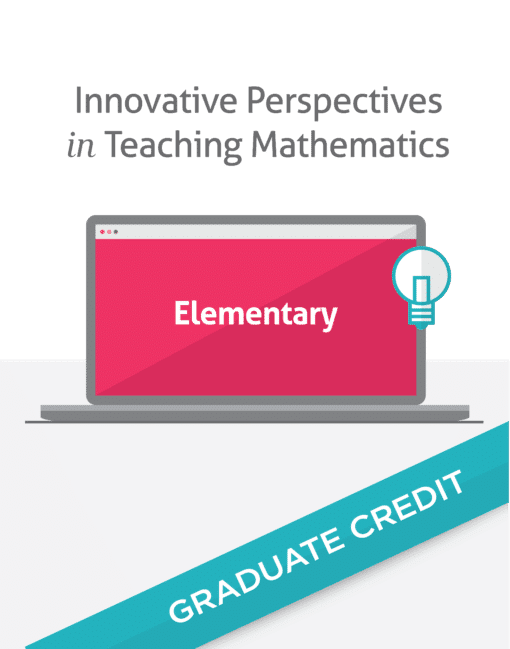Innovative Perspectives in Teaching Mathematics: Elementary
$499.00
Graduate Credit PD Course
Credits: 3 graduate credits per class
Time: Complete anytime within 9 months
Admissions: Start anytime!
Course Description:
The primary goals of this course are to introduce educators to the necessary skills to implement the Curriculum Standards for their state as they relate to mathematics instruction and to assist educators in becoming effective classroom teachers, by using the most up-to-date materials, pedagogical techniques (including Project Based Learning), and appropriate tools to teach by state Standards. This course will focus on the implementation of higher-order thinking skills to students in elementary mathematics classrooms. Educators will examine strategies and skills to engage creatively mathematics students and master teaching techniques appropriate for the implementation of instructional methods based on current research regarding teaching and learning.
| Course Credit | 3 Graduate Credits |
|---|---|
| Accreditation & Transcripts | Upon completion, students may request a transcript from Converse University, a leader in graduate education and an accredited institution. Credits may be applied towards professional development, licensure renewal, career and salary advancement. Please Note: These courses are not designed to satisfy requirements for those seeking to teach at the community college level or above, or for dual enrollment. Students must check with their state/district for approval. |
| Readings & Resources | Students will be using selected readings, videos and other items available from NCTM, online journal articles, |
| Course Requirements | This course will be offered through Distance Education. Participating teachers may take up to nine months to complete all requirements. There are no scheduled class sessions or meetings. All work is to be submitted through the Moodle e-learning platform. Please refer to the courses syllabi for further information on the course requirements. |
| Course Topics | Course topics include but not limited to: Standards for Mathematical Practice, Investigative Experiences, Historical Perspective, Methods, Ideas, Materials, Models, Activities. |
Related products
Graduate Credit
Graduate Credit
Graduate Credit
Graduate Credit
Graduate Credit
Graduate Credit
Graduate Credit
